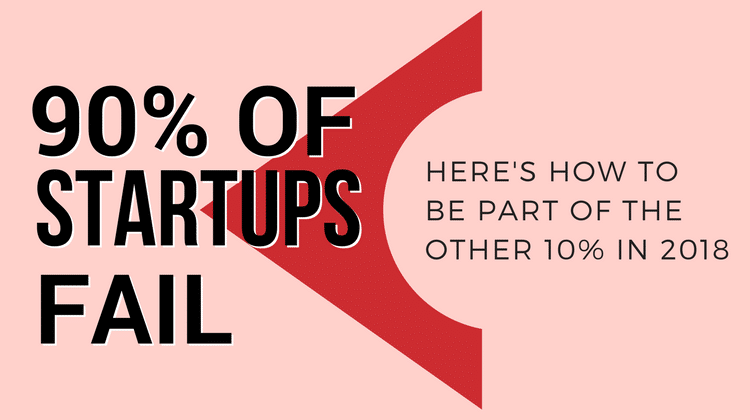
Sponsored by Website Hosting Rating:
There’s this old Chinese proverb that says, “The best time to plant a tree was twenty years ago. The second best time is today.” The same idea can be applied to when is the best time to launch a startup.
However the harsh reality is that the odds are stacked against you if you plan to create a thriving, successful startup. By some estimates, nine out of every 10 startups will eventually fail – some of them within the first year of operation.
If you want to join the other 10% of entrepreneurs who are building thriving businesses, then you need to understand these five cornerstones of becoming a startup success.
1. Have a Business Plan
The saying, “If you fail to plan then you plan to fail,” (that’s deep I know) rings true when it comes to business plans. Not having a business plan is a common problem among startups. You may not need a 100-page business plan, but you do need some type of roadmap for the next one, three, six, and 12 months.
Think of the business plan as the blueprint for how you plan to finance, market, launch, and run your business. If you need help, check out Bplans for sample plans and templates you can use to create your very own business plan.
2. Sell a Product People Actually Want
Okay, this may seem like an obvious no-brainer, but many businesses try to sell customers a product or service that they don’t actually need — like when Colgate (you know, the toothpaste brand) back in 1982 decided to launch a range of ready-made frozen meals. #fail
In some cases, it’s because businesses are trying to super-serve some niche that they think exists out there. In other cases, it’s because they’ve failed to do their homework.
You’d be surprised at how many people decide to launch a business without doing a market survey to gauge potential consumer demand or determine the real price people would be willing to pay for a product. That’s why many Silicon Valley venture capitalists won’t even consider funding a startup unless it has isolated a billion-dollar market opportunity.
So think big. If your product is only of interest to a small core group of users, then your business is never going to gain the necessary momentum to become a startup success.
3. Have a Cash Reserve that Will Last for at Least Six Months
Startups tend to burn through cash faster than you might expect, and that’s especially true if they’re still struggling to sell a product in the first couple of months of operation. Thus, it’s always best to build a cash reserve that will last for at least the first six months of operation your business.
In Silicon Valley, this is known as your “runway.” If you want your startup to take off, you need to build as long a runway as possible. This will give you time to get the business off the ground (literally).
In some cases (but I strongly advise against it), you can extend your runway by using credit cards or securing funding from friends and family.
4. Make the Right Hires from Day One
The most important hires you will make as a startup founder are the first hires. These are the people who are going to be your core team, and who are going to drive forward the business. You want these people to be talented and experienced of course. But you also want them to be passionate and excited about your company.
That’s why startup companies often place so much emphasis on creating the right mission statement or on highlighting all the ways that they plan to change the world. This can help you filter the right candidates. Do they also believe in your core mission? Will they still be passionate when your startup has its inevitable growing pains?
Remember the one thing your competitors can’t copy is your human capital. Your people are your biggest differentiator and your number one advantage.
5. You Must Have a Website
Having a website for your startup is, I would say, essential. A website is how you tell prospective customers and investors that you exist. Fortunately, it’s very easy and affordable to start a website, whether you plan to sell products online or simply want to use your website as a marketing tool.
To build a website all you need is a domain name and web hosting, and you can use a software like WordPress or a drag-and-drop website builder tool. Plus, finding freelance web developers and designers today is a piece of cake and affordable.
Building a website should be one of your first steps, because your website will become the foundation of all your other marketing efforts.
Wrap Up
The good news is that all of these five steps are ones that you have control over., so instead of focusing on all the reasons why startups fail – “market conditions” or “poor marketing” or “bad business model” or simply “bad luck” – start focusing on why startups succeed.
By following the five guidelines above, you’ll be well on your way to future startup success in 2018 and beyond.